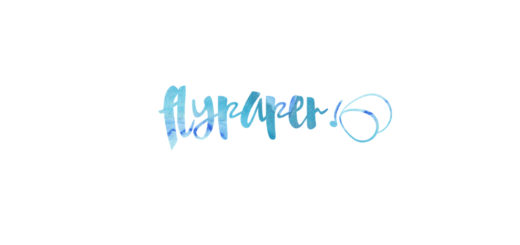Make a music supervisor happy: (not) using music samples

Photo: jonschwarz via pixabay
Music licensing can be a complicated business. This is one of the reasons we set up our platform the way we did: a direct relationship with artists allows us to obtain clearance for tracks quickly and easily. The use of another artist’s sample, however, opens up a world of legal complexity.
The ins and outs of music sampling: a very brief history
Put yourself in a music supervisor’s shoes for another licensing heartache: you’ve found a catchy electronic song, and you’re listening in full to confirm it’s perfect for an uptempo advertising brief. Suddenly you get a bad feeling – isn’t that a familiar voice? Rewind: it’s a short but clear sample of Madonna’s ‘Vogue’. Back to the drawing board.
Of course there’s no denying sampling’s appeal – used well it can juxtapose genres and themes beautifully, draw attention to an under-appreciated fragment of a song, or bring recognition to an overlooked artist. Unfortunately, its halcyon days are long since over in terms of easy use.
In the earlier days of hip hop and electronic music, the copyright implications of using music samples were generally overlooked or kept out of court, a fact that left the original creators and theoretical rights owners of music’s most famous sample, the Amen break, both embittered and without any royalties to their names. In 1991, however, Gilbert O’Sullivan set a precedent by suing Biz Markie over his track ‘Alone Again’, and since then artists of every genre have been sued on a pretty regular basis for failing to clear their samples.
Music sampling’s implication for independent artists
Bear in mind that the notion of sampling does NOT only include clearly recognizable segments of songs. Drumlines, recognizable basslines and riffs, vocal samples, and sections of film or television audio all count.
Laws, as well as the idea of “fair use”, vary from country to country (and the international spread of our clients means we have to consider a wide spectrum of cases). But generally, they have one thing in common: if you stand to make money from a recorded track (and that, after all, is what we want for you!) you will no longer be protected by any such defense.
The Cliffs of Insanity (Or: Why Sampling Ain’t Streamlined)
Legally, there are three terms to keep in mind here. This all has to do with that often-mangled notion of copyright. Thrown around in confusion in Youtube video descriptions it might be, but the basic concept is a simple one: in the case of music, it ensures that an artist who creates a song has the right to approve or reject the creation of new songs based on or derived from their original work. The person who holds this power is the copyright owner. However, copyright is not necessarily limited to one person: if a song has multiple creators, such as a composer and lyricist, or several songwriters, the copyright will be divided equally between them. The relatives of a deceased artist may also have a claim here.
This leads to the idea of publishing rights. The owner of a song’s publishing rights owns the composition itself, or the sheet music if you like. This owner may be the artist alone; more often a music publishing company is involved.
Then there’s the master rights – in other words, the rights to the recording of a song. This is usually where a record label comes into the picture.
So what does this mean for the would-be sampler? To use a sample, you must get the go-ahead from all rights holders – which usually means at a minimum the artist, their publishing company, and their record company – and pay whatever fee they might stipulate.
A thorny sampling example
To get an idea of the layers of complications sampling can cause, take the song ‘Good Feeling’ by Flo Rida. The inescapable club banger heavily samples Avicii’s ‘Levels’, which in turn samples an Etta James track, ‘Something’s Got A Hold Of Me’. Composer Leroy Kirkland worked with songwriter Pearl Woods on said track, while producers Dr. Luke and Cirkut worked on ‘Good Feeling’, both credited as lyricists. In total nine people, living and dead (we’ll leave out the idea of wills and estates here altogether), have a copyright claim on the song as both songwriters and lyricists, while twenty-one companies are listed under the song’s publishing rights.
What’s an artist to do?
Safety depends on your never being noticed by the artist, publisher or record label. Even if you plan to stay in creative obscurity (which doesn’t jive with what we want for our member artists either), obscurity is not a thing you can guarantee, as the bewildered progenitor of the infamous ‘Harlem Shake’ discovered. He’s also proof of how eye-watering the resultant legal threats can be – in his case, a peeved copyright holder wanted Baauer’s entire royalties. And not everyone has Diplo onside to swoop in and (apparently) save the day.
There’s a misconception that “small” artists will not be sued by chart-toppers, either because they are too obscure for properly big-time artists to stumble across, or out of a sense of magnanimous generosity. This is not always the case, by any means. Neither major nor smaller artists are immune. The legal hydra could also raise its head at any time, as Moby learned after 22 years apparently in the clear.
Samples and Tracks & Fields requests
We’re afraid our stance is a strict one. We will not license a song if there is any doubt about where any of its components came from.
To clear a song can be a convoluted and painful process, and above all, that it takes time. As we’ve stressed before, time is absolutely of the essence in the licensing world. We cannot wait for another artist to grant their permission, and generally a client will not be willing to pay an unexpected extra and possibly very high fee to obtain a sample-containing track.
Our music sampling advice
To save pain, we recommend that you avoid sampling altogether on tracks you intend to license for sync use, and perhaps altogether unless you have the legal or financial resources of Kanye. An uncleared sample may not matter on a free mixtape or played live as a small-time artist, but if you have achieved or hope to attain any kind of wide distribution, it’s best to have your house in immaculate order.
Leave license-clearing headaches to the music supervisors, and instead concentrate on creating sample-free music you can profit from with a clear conscience!


